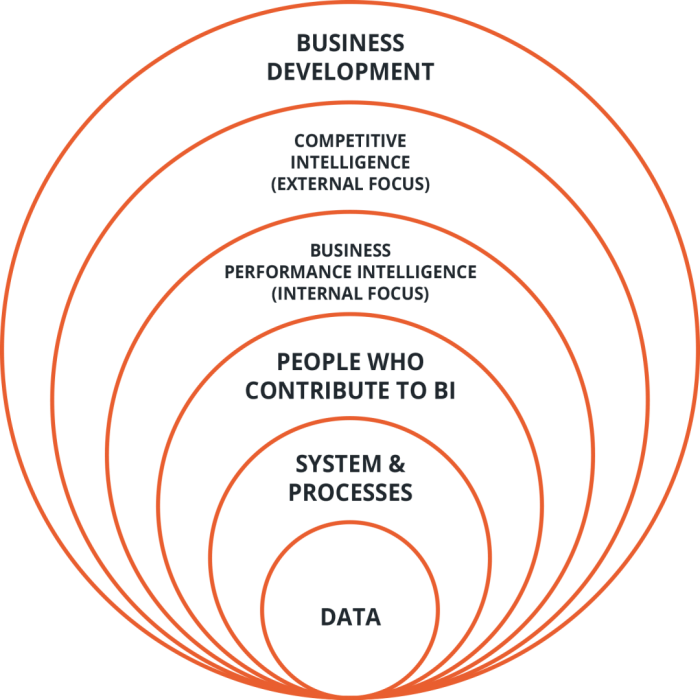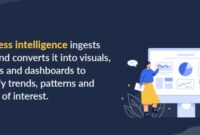Business intelligence analyst skills are in high demand as organizations seek to leverage data to drive informed decision-making. This guide will explore the essential technical, analytical, communication, business acumen, and industry-specific skills required to excel in this dynamic field.
From mastering programming languages and data visualization tools to understanding statistical models and communicating insights effectively, we will delve into the core competencies that empower business intelligence analysts to transform raw data into actionable insights.
Business intelligence analysts are in high demand due to their expertise in transforming raw data into actionable insights. To excel in this role, professionals should possess strong analytical, problem-solving, and communication skills.
Understanding the core concepts of what is business intelligence bi is crucial, as it provides the foundation for extracting meaningful insights from data and developing strategies that drive business success.
Technical Skills

Business intelligence analysts rely on a range of technical skills to perform their job effectively. These include:
Core Programming Languages
- Python
- SQL
- R
- Java
Data Analysis and Visualization Tools
- Tableau
- Power BI
- Google Data Studio
- QlikView
Database Management Systems
Analysts use database management systems to store, organize, and retrieve data for analysis. Common database systems include:
- MySQL
- Oracle
- Microsoft SQL Server
- PostgreSQL
Analytical Skills
Business intelligence analysts use analytical skills to identify trends, patterns, and insights in data. These skills include:
Problem-Solving Techniques
- Hypothesis testing
- Regression analysis
- Cluster analysis
- Time series analysis
Identifying and Interpreting Trends and Patterns
Analysts use statistical and mathematical models to identify and interpret trends and patterns in data. These models include:
- Linear regression
- Logistic regression
- Decision trees
- Neural networks
Communication Skills: Business Intelligence Analyst Skills
Business intelligence analysts must be able to communicate their findings clearly and effectively to stakeholders. These skills include:
Effective Written Communication
Analysts must be able to write clear and concise reports, presentations, and other documents that communicate their findings to a variety of audiences.
Presenting Findings to Stakeholders

Analysts must be able to present their findings in a way that is engaging and easy to understand. This may involve using data visualization tools, creating dashboards, or giving presentations.
Data Visualization
Data visualization is a powerful tool for communicating insights clearly. Analysts use data visualization tools to create charts, graphs, and other visuals that help stakeholders understand the data and its implications.
Business Acumen
Business intelligence analysts need to have a strong understanding of the business they are working in. This includes:
Industry Knowledge
Analysts need to be familiar with the industry they are working in, including the key players, trends, and challenges.
Business intelligence analysts need strong analytical skills to identify trends and patterns in data. However, emotional intelligence is equally important for effective communication and collaboration with stakeholders.
By understanding the emotional intelligence in business , analysts can build stronger relationships and influence decision-making, ultimately enhancing their ability to drive business outcomes through data-driven insights.
Aligning Analysis with Organizational Goals
Analysts need to be able to align their analysis with the organization’s goals and objectives.
Strategic Decision-Making, Business intelligence analyst skills
Business intelligence analysts can play a key role in strategic decision-making by providing insights and recommendations based on their analysis.
Concluding Remarks
In the ever-evolving landscape of data analysis, business intelligence analysts with a comprehensive skillset are poised to drive organizational success.
By embracing emerging trends such as artificial intelligence and machine learning, they can unlock the full potential of data and empower businesses to make data-driven decisions that drive growth and innovation.
Top FAQs
What are the key technical skills for business intelligence analysts?
Business intelligence analysts are responsible for collecting, analyzing, and interpreting data to help businesses make informed decisions. They need a strong understanding of data analysis techniques, as well as the ability to communicate their findings clearly and effectively.
While there are many commercial business intelligence software programs available, there are also a number of freeware options that can be just as effective.
Freeware business intelligence software can be a great way for businesses to get started with data analysis without having to invest in expensive software.
Business intelligence analysts can use these freeware tools to gain valuable insights into their data and help their businesses make better decisions.
Core programming languages include Python, R, and SQL. Data analysis and visualization tools encompass Tableau, Power BI, and Google Data Studio. Database management systems such as MySQL and PostgreSQL are essential for data analysis.
How do business intelligence analysts identify trends and patterns in data?
They employ statistical techniques like regression analysis and time series analysis. Data mining algorithms and machine learning models are also used to uncover hidden insights and predict future outcomes.
Why is effective communication crucial for business intelligence analysts?
Analysts must clearly convey their findings to stakeholders through written reports, presentations, and interactive dashboards. Data visualization plays a vital role in making complex data accessible and actionable.




